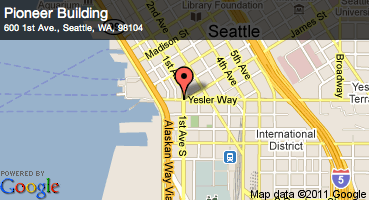2011
Cultivating a Growing Awareness of the Greatness of God
Teaching | by Pastor Adam Sinnett
This past Sunday we looked at the Apostle Paul’s doxology at the end of Ephesians chapter three, in which he praises God “who is able to do far more abundantly than all that we ask or think…” (Eph 3:20-21) Specifically, Paul is speaking of God’s unlimited power. Generally, Paul is speaking of God’s greatness. A significant reason why our faith is often so weak, our worship so dull and our praises unsung is that we’ve lost our sense of the greatness of God. If that’s the case, how do we go about cultivating a growing awareness of the greatness of God? Let me suggest the following:
#1 Meditate on the Scriptures.
The primary means by which to cultivate a growing awareness of the greatness of God is to allow the truths of who God is, what He has done and what He promises to do to take root in the soil of your heart. That happens as we carve out time and space to meditate on the scriptures. I posted some possible starting points here earlier in the week. Biblical meditation is the process of filling your mind with the Word of God, unlike the emptying of the mind of eastern meditation. Biblical meditation is the process of taking a verse and prayerfully considering it, thinking over it, and personally applying it. In Knowing God, JI Packer describes it as “an activity of holy thought, consciously performed in the presence of God, under the eye of God, by the help of God, as a means of communion with God.” (JI Packer, Knowing God, 23) All you need is your Bible but I’ve found that using a pen and paper for recording your thoughts, insights and questions help the process.
#2 Watch the Stories.
It is one thing to say God is great, but it is another to demonstrate it. That’s why God gave us stories. The Bible not only tells us that God is great, it shows us. One of the primary ways we learn of His greatness is through the true stories of how He has acted in history recorded for us in the Bible: the lame walk, the blind see, the barren give birth, His promises fulfilled, His purposes accomplished, His people rescued, His Son resurrected. The stories tell a story of the glory of greatness of God. Watch the stories and apply the first point above.
#3 Reflect on the Gospel.
If you’re a follower of Jesus, make it personal by taking time to reflect on what God has done to bring you home to him. Reflect on your sin. Reflect on His grace. Reflect on your identity in Christ. Reflect on God’s great holiness and justice. Reflect on God’s great love and compassion. Reflect how these coalesce at the cross. Reflect not only on your initial need of the gospel, but your continual need of the gospel. There is no greater place to see the greatness of God than in the great news of the gospel of Jesus Christ. (cf John 3:16, 2 Cor 5:21, Romans 5, etc)
#4 Read Stirring Books.
Our time is limited, so we must exercise wisdom regarding what we read. Read books and biographies that stoke your affections for God by giving you glimpses of His greatness. A list here would be lengthy, but you’ll hardly go wrong if you stick with dead guys. Consider the John Calvin’s Institutes of the Christian Religion, the Puritan Paperback series, Augustine’s Confessions, Bunyan’s Pilgrim’s Progress, Edwards’ Religious Affections, and others.
#5 Go Outside.
So much of our lives are spent inside boxes: cubicles, cars, homes, elevators, conference rooms and others. Getting outside our boxes to enjoy God’s creation can go a long way in cultivating a sense of the greatness of God on your heart, mind and soul. Head to the mountains, find a beach, or go for a walk with eyes and ears tuned into the greatness of the God who made all that you see.
#6 Avoid Numbing Your Affections.
If we want to cultivate a growing awareness of the greatness of God we must keep tabs on those things that numb our souls to His greatness. This would include harboring sin, not carving out regular time before the Father in the Word and prayer, being busy, not taking adequate time to rest and recharge, watching too much television, playing too many video games, listening to unhelpful music with an undiscerning ear, and not responding to the Spirit’s promptings toward holiness and obedience. Its important to know yourself. Avoid what numbs, cultivate what stirs.







 Prayer is to the Christian life, what air is to breathing. Prayer is our life line to our Father in Heaven. As a young child holds the hand of his dad for stability, direction and relationship, so in prayer we hold the proverbial hand of Our Father for the same (Lk 11:9-13). He knows what we need before we ask him (Matthew 6:8). Yet, he also says we do not have because we do not ask (James 4:2). He invites us to humbly, yet boldly, ask of him in faith and it will be ours (Matthew 21:22; Mk 11:24; 1 John 5:14-15). Yet, too often, we overlook it entirely.
Prayer is to the Christian life, what air is to breathing. Prayer is our life line to our Father in Heaven. As a young child holds the hand of his dad for stability, direction and relationship, so in prayer we hold the proverbial hand of Our Father for the same (Lk 11:9-13). He knows what we need before we ask him (Matthew 6:8). Yet, he also says we do not have because we do not ask (James 4:2). He invites us to humbly, yet boldly, ask of him in faith and it will be ours (Matthew 21:22; Mk 11:24; 1 John 5:14-15). Yet, too often, we overlook it entirely.